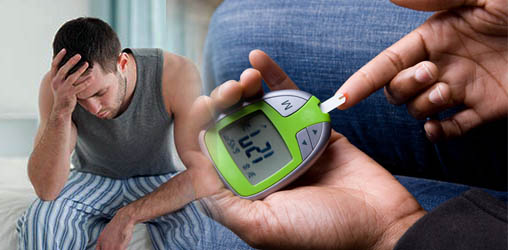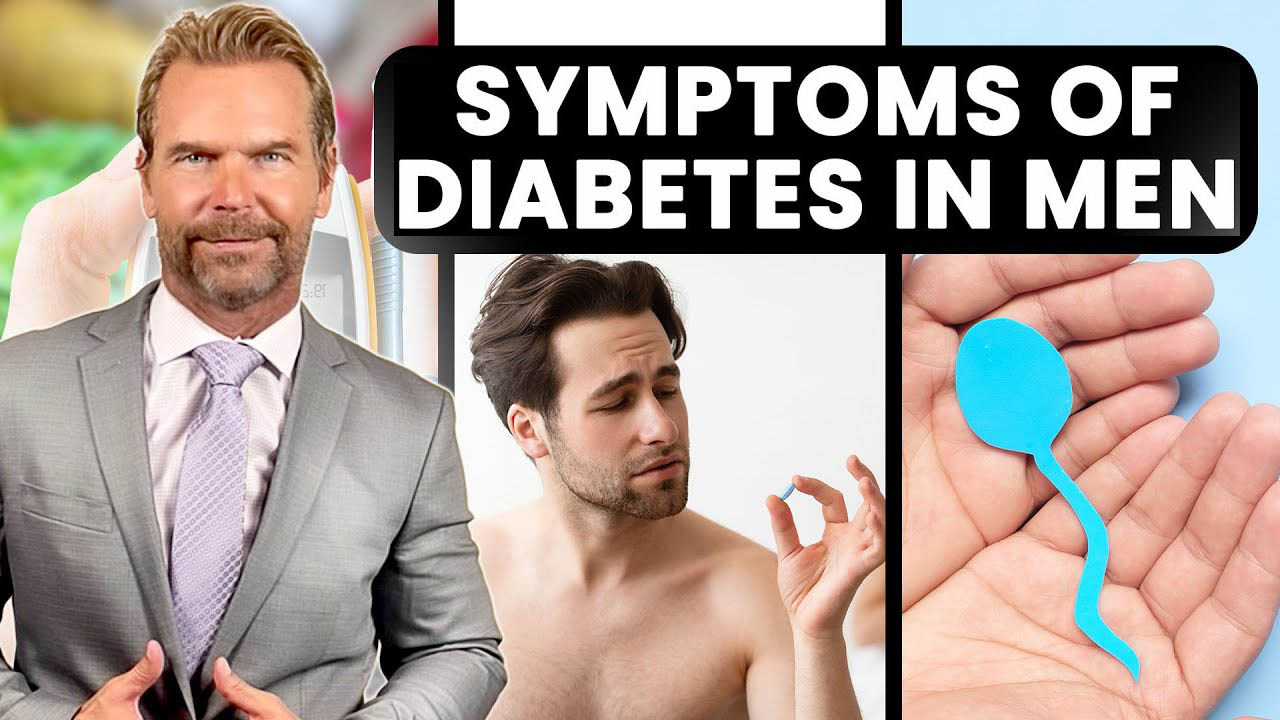There is a time in a man’s life when his self- esteem is most vulnerable, and he is coping with it. Rouge gives you the lowdown on every man’s greatest fear — ‘erectile dysfunction’ and what causes it
DINNER WAS delicious, kissing was malicious, the scent was inviting and foreplay exciting. But when the time came to show up who the man was, the little soldier stayed in hiding.

There comes a time in every man’s life when he must face up to the fact that his best friend will let him down. And this is probably the time in a man’s life when his self-esteem is most vulnerable.
Still unable to grab my drift? Well, we’re talking about erectile dysfunction or impotence, a common yet rarely openly-discussed problem that afflicts several middle-aged and older men, with the condition being most common in men of 60 years and beyond.
Vanities
There is a time a Man’s life when his self-esteem is most Vulnerable, and he is coping with it. Rouge gives you the lowdown on every man’s greatest fear – ‘Erectile Dysfunction’ and what causes it.
STAND UP AND BE COUNTED…
Erectile dysfunction is the inability to achieve or sustain an erection for satisfactory sexual activity. Erectile dysfunction is different from other conditions that interfere with sexual intercourse, such as lack of sexual desire and problems with ejaculation and orgasm. Whilst it does vary in its severity with different men, erectile dysfunction can occur at any age, although it is uncommon among young men and more common in the elderly. It’s found that by age 45, most men have experienced erectile dysfunction at least some of the time.
In fact, according to the Massachusetts Male Aging Study, complete impotence increases from five per cent among men 40 years of age to 15 per cent among men 70 years and older. Population studies conducted in the Netherlands found that some degree of erectile dysfunction occurred in 20 per cent of men between ages 50 to 54 and in 50 per cent of men between ages 70 to 78.
“Erectile dysfunction is pretty common in India, though often hidden,” says Varkha Chulani, psychotherapist and author of the forthcoming book, What Women Want!. “It arises either due to physiological conditions like problems in the hormonal or genital areas, or more often due to psychological problems which arise out of faulty ideas about sexuality, like ‘I MUST be able to last these many hours’ or ‘I MUST have this particular penis size’. Due to these faulty attitudes, you’ll find that impotent men are very complex, anxious people, who greatly fear failure.”
KNOW YOUR POTENCY…
It is estimated that 50-60 percent of diabetic men have erectile dysfunction. Bladder dysfunction is also correlated with erectile dysfunction. Parkinson’s Disease and temporal lobe abnormalities are contributing factors too. Men suffering from stroke and alcoholism are at a very high risk because of the damage to the testicles in chronic alcoholism and the loss of testosterone.
Aging is a tremendous factor in erectile dysfunction, often related to a decrease in male hormones. Chronic renal insufficiency is another potential cause. Recreational drugs too are a major cause, with the number one drug being tobacco. Experiments show that even two cigarettes will markedly decrease the blood flow to the penis if smoked before sex. Add to that, marijuana and alcohol, in addition to certain prescription drugs.
“The causes of erectile dysfunction are of two types: psychological and organic.
Psychological causes, which are more common, usually arise from a fear of failure, with one fear breeding another fear and that being carried over to the bedroom. However, this is easy to modify through behaviour therapy,” says renowned sexologist, Dr Prakash Kothari. “Organic causes are largely vascular problems, with the three S’s – stress, scotch and smoking – not being good for the big S. Diabetes, alcohol, tobacco, hypertension and use of psychotropic drugs fall in this category. As Shakespeare quite rightly said about alcohol, “It provokes the desire but takes away the performance.” So watch put! You now know where to stop, when you wanna get going !
UPWARD BOUND…
Today’s medical advancements have allowed successful treatment of erectile dysfunction through a variety of alternatives. A man and his partner(s) no longer have to deal with the void of sexual displeasures. A man who suffers from repetitive erection loss can consult a specialist like a sexologist or urologist. In general, the specialist will conduct a physical examination. This will allow him to get a good handle on the diagnosis, at which point he will proceed to explore the various treatment options: Vacuum pumps, penile injections, medications (like Viagra) and penile prosthesis.
“The most important solution is to first clear the psychological myths and misconceptions that the person has,” adds Dr Kothari. “Yes, vacuum pumps are used but they’re too messy and penile injections also do work, but if it can be helped by a pill then that is usually the most popular option. The bottom line to remember is that if you can masturbate, then it means that you are not impotent – that the problem is possibly situational or psychological.”
Reiterates Chulani, “Intensive psychotherapy is also recommended. Because unless the man’s attitude doesn’t change, there can be no change in performance. Eventually, a man’s greatest sex organ is between his ears and not his legs.”
Hmm, now, is that what’s known as head banging?
Diabetes raises impotency risk
If you are a diabetic, you have reasons to worry about much more than only heart-related problems as the sugar-related ailment has been found to spawn erectile dysfunction or impotency in males.

A 10-year analysis done by the Alpha One Andrology Group — a city-based male impotence clinic — has revealed that of their 1,100 patients, 38% are diabetic men aged between 40 and 60 years. Male diabetics, in fact, were found to be the single largest group of patients suffering from impotence — a finding that prominent andrologists in the city say supports their own observations made over the past decade or so.
Said Dr Anup Dhir, plastic surgeon and director of the group: ‘‘There has been a sharp rise in the number of male impotents. Since majority of them are blue collar workers, stress is a huge factor which again may manifest itself through diabetes.’’
The relationship between diabetes and male erectile dysfunction, he says, is well-recognised medically. ‘‘Diabetes has the dual role of inhibiting impulse transmission so that signals from the brain to the penis are disrupted and also causes narrowing and hardening of blood vessels. The latter effect that has been discussed so often in case of coronary artery disease sets in faster in the penile vessels because of their narrow diameter,’’ Dhir explained.
Labelling diabetes as the principal cause of impotency in men aged between 35 and 55 years, Dr N K Mohanty, professor and head of the department of urology at Safdarjung Hospital and Vardhaman Mahavir Medical College, said: ‘‘For India, which has the most number of diabetics in the world, this is a very dangerous trend. About 35-38% of the patients who come to our andrology clinic are diabetics. In fact, the huge rise in male impotency in the last few years is largely because of the increased incidence of diabetes.’’
However, there are no centralised figures available for the rise in male impotence. Dr Mohanty said: ‘‘From our own experience, we can say when the andrology clinic was started 10 years ago, there was hardly one patient a week. Now there are 15 to 20 new patients every week.’’
Dr Ajit Saxena, consultant andrologist at Indraprastha Apollo Hospitals said: ‘‘The Alpha One figures just about match our own. Here, about 40% patients who come with erectile dysfunction are diabetics.’’ Apart from the effect of diabetes on neuronal transmission and penile vasculature, he pointed out that a third possible way the disease may lead to male impotence.
‘‘Diabetes is known to cause hormonal imbalance, that may lead to erectile dysfunction. Stress has been time and again indicted in impotence, but what we might not have talked about enough is that apart from the psychological problems caused by stress that alone can lead to male impotence, stress can also take its toll on sex through the diabetes route,’’ Saxena added.
IMPOTENCY AND DIABETES
Men with diabetes are about three times more likely to have Erectile Dysfunction than other
Erectile dysfunction is a common complication of diabetes. Left untreated, it can erode the quality of life for you and your partner. Sexual problems can increase your levels of stress, frustration and discouragement trigger depression and even make you less likely to manage your diabetes effectively.
What is erectile dysfunction.
Erectile dysfunction (ED), also called impotence, is the inability to attain or maintain an erection of the penis that is firm enough for penetration during sexual intercourse. To initiate and maintain an erection, the penis must fill with blood. Nerve signals stimulate this engurgerent. They prompt blood vessels in penis to expand so blood can fill it. Meanwhile other blood vessels constrict, trapping blood inside.
Why do men with diabetes have erection problems?
The causes of erectile dysfunction in Men with diabetes are complex and involve. blood vessel and muscle function.
To get an Erection, Men need Healthy blood vessels. nerves, male hormones and a desire to have sex. Diabetes can damage the blood vessels and nerves that control erection.
What Treatment are Available for People With Diabetes and ED?
Men with Diabetes having trouble with achieving and/or maintaining erection can take Oral Medicine Prescribed by a Doctor.
However, Because People with Diabetes also Tend to Have Problems with their Heart. these medications many be Risky. Talk to a Doctor to Determine what treatment is Best. In some cases, a Doctor many also Refer you to a Urologist for a Check-up.
Instead of just getting a prescription to treat the condition, experts recommend that men with erectile dysfunction see a doctor who can check for underlying vascular problems.
Says Dr Krishnamurti, “Though the damage to the arteries of the penis cannot be reversed, medication, vacuum therapy, injection therapy and in some cases penile prosthetic implantation operation has been proven to be useful.”



